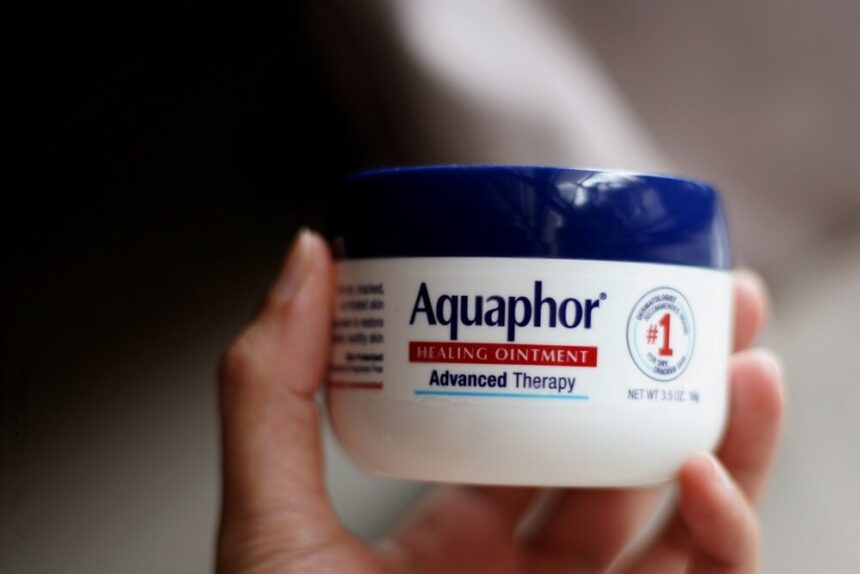As cat owners, we always want to ensure the safety and well-being of our feline companions. When it comes to their dietary habits, it’s essential to be cautious about what they consume. Aquaphor is a popular ointment used for various purposes, including moisturizing the skin, treating minor cuts, and soothing dryness. However, can cats eat Aquaphor? In this article, we will explore the potential risks and safety considerations associated with cats consuming Aquaphor.
The Potential Risks for Cats
- Ingestion: Cats are curious by nature, and they may try to lick or consume substances they come across, including Aquaphor. Ingesting Aquaphor can lead to various complications, primarily due to the ingredients it contains.
- Gastrointestinal Issues: The petroleum-based ingredients in Aquaphor can be difficult for cats to digest. Ingesting a significant amount may cause stomach upset, diarrhea, or vomiting.
- Obstruction: The thick consistency of Aquaphor can pose a risk of intestinal obstruction if a cat ingests a large amount. This can be a serious condition requiring immediate veterinary attention.
- Toxic Ingredients: While the primary ingredients in Aquaphor are generally safe for human use, they may not be suitable for cats. Cats have specific metabolic processes that differ from humans, and certain ingredients in Aquaphor could be toxic to them.
- Skin Irritation: Applying Aquaphor topically on cats’ skin may not be harmful in small amounts, but excessive use or contact with sensitive areas could potentially cause skin irritation or allergic reactions.
Safety Considerations
- Veterinary Consultation: Before using any product on your cat, especially if it’s not specifically formulated for feline use, it’s crucial to consult with a veterinarian. They can provide guidance based on your cat’s specific needs and advise on safe alternatives if necessary.
- Secure Storage: To prevent accidental ingestion, it’s important to store Aquaphor and similar products in a safe place where cats cannot access them.
- Alternative Options: If your cat has a skin condition or requires moisturization, consult your veterinarian for cat-friendly alternatives. They may recommend products specifically designed for feline use.
- Observation and Monitoring: If you suspect your cat has ingested Aquaphor or any other potentially harmful substance, observe their behavior closely and look for any signs of distress or abnormal symptoms. Contact your veterinarian immediately if you notice any concerning changes.
FAQ
Can I apply Aquaphor on my cat’s skin?
It is not recommended to apply Aquaphor or any human skincare products on your cat’s skin without consulting a veterinarian first. Cats have sensitive skin and different physiological processes than humans, so it’s important to use products specifically formulated for feline use.
What should I do if my cat ingests Aquaphor?
If you suspect that your cat has ingested Aquaphor, it is important to monitor their behavior closely. Look for any signs of distress or abnormal symptoms such as vomiting, diarrhea, or lethargy. Contact your veterinarian immediately for guidance and seek professional advice.
How can I prevent my cat from accessing Aquaphor?
To prevent accidental ingestion, store Aquaphor and similar products in a secure place where your cat cannot reach them. Consider using childproof containers or keeping them in cabinets or drawers that are inaccessible to your cat.
Can I use Aquaphor on my cat’s paws?
It is not recommended to use Aquaphor or any human skincare products on your cat’s paws without veterinary guidance. Cats groom themselves and may ingest the product when licking their paws, which can lead to potential complications. Consult with your veterinarian for appropriate paw care options for your cat.
Can Aquaphor be toxic to cats if they lick it off their fur?
While licking a small amount of Aquaphor off their fur may not cause immediate toxicity in cats, it is still not recommended. Cats have a grooming instinct, and they can ingest more significant amounts while trying to clean themselves. The petroleum-based ingredients in Aquaphor can be difficult for cats to digest and may lead to gastrointestinal issues or other complications. It’s best to prevent your cat from licking or ingesting any products that are not specifically formulated for feline use.
Are there any cat-friendly moisturizers or ointments that I can use instead of Aquaphor?
Yes, there are cat-friendly moisturizers and ointments available that are specifically formulated for feline use. These products are designed to address common skin issues in cats and are safe for them to lick and groom. Your veterinarian can recommend suitable alternatives based on your cat’s specific needs.
Can Aquaphor be harmful if applied in small amounts on my cat’s dry nose or paw pads?
Applying Aquaphor in small amounts on your cat’s dry nose or paw pads may not be immediately harmful. However, it is still best to consult with a veterinarian for appropriate alternatives specifically designed for feline use. Some cats may be more sensitive to certain ingredients, and excessive use or prolonged contact may lead to skin irritation or other adverse reactions.
Is it safe to use Aquaphor on other pets, such as dogs?
While Aquaphor is generally considered safe for human use, it is important to remember that different species have different physiological processes and sensitivities. It is best to consult with a veterinarian before using Aquaphor or any human skincare products on other pets to ensure their safety and well-being.
Conclusion
While Aquaphor is generally safe for human use, it is not recommended for cats. The potential risks, including gastrointestinal issues, obstruction, and toxic ingredients, make it essential to keep Aquaphor away from cats and seek feline-specific alternatives for their skincare needs. Remember, the well-being of your cat should always be your top priority, and consulting with a veterinarian is crucial when it comes to their health and safety.


